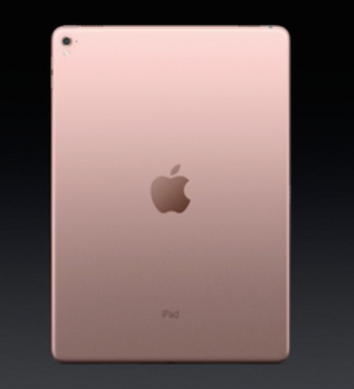Google execs at the GCP Next 2016 conference pitched the company's cloud platform by highlighting advantages, including security, commitment to open source, and machine learning.
iPhone SE, Smaller iPad Pro Unveiled: Up Close Look
iPhone SE, Smaller iPad Pro Unveiled: Up Close Look (Click image for larger view and slideshow.)
SAN FRANCISCO -- Google executives on Tuesday took turns extolling the capabilities and potential of the company's cloud computing infrastructure, with an eye toward dethroning cloud computing leader Amazon.
"In the future, almost everything will be done in the cloud because it simply is a better way of doing computing," said Google CEO Sundar Pichai in opening remarks at the Google Cloud Platform Next 2016 conference.
Such sentiment is expected at a cloud evangelism event. But Google wrapped its hard sell in an alluring package, the promise of machine learning.
"This platform is not the end, it's the bottom," said Eric Schmidt, chairman of Google parent company Alphabet. "And there's something above it. Machine learning."
Google demonstrated the power of machine learning earlier this month in South Korea where its AlphaGo system beat celebrated Go player Lee Sedol in four out of five games. The victory gave weight to the company's insistence during recent earnings calls that machine learning represents a significant source of future innovation and revenue.
Google's recent decision to open source its TensorFlow machine learning framework now makes more sense. Google wants companies to run machine learning tasks on the Google Cloud Platform (GCP).
Toward that end, Google announced the alpha release of Cloud Machine Learning, a framework for building and training custom data models using distributed learning algorithms based on TensorFlow.
Google also announced new GCP regions, US Western region in Oregon and East Asia region in Tokyo, two of 10 coming online through 2017; new customers like Best Buy, Coca Cola, and Macy's; GCP integration efforts from enterprise ISVs; BigQuery and Cloud Networking enhancements; and GCP enterprise enhancements like Audit Logging, IAM Roles, and the pending general availability of customer supplied encryption keys.

Learn to integrate the cloud into legacy systems and new initiatives. Attend the Cloud Connect Track at Interop Las Vegas, May 2-6. Register now!
Schmidt struck a conciliatory tone to court enterprise decision makers. He acknowledged that Google expected too much of companies as it moved into the cloud market with App Engine in 2008. The company didn't provide the right stepping stones into the cloud, he said.
Google's cloud offerings have become far more extensive, capable, and inviting since then, and the company is more solicitous to business customers. "We decided to meet you where you are, as opposed to where we think you should be," said Schmidt.
Schmidt's message of accommodation recalls another ad campaign, the competition between car rental leader Hertz and challenger Avis in the 1960s: "When you're only No. 2, you try harder. Or else." (Google ranked fourth in Q4 2015, behind Amazon Web Services, Microsoft Azure, and IBM in terms of public IaaS marketshare.)
Amazon Web Services, the public cloud market leader, initially didn't come up by name, but Diane Greene, senior VP of Google's enterprise business, stressed Google Cloud Platform's customer-friendly pricing and claimed that GCP services are often 50% less than the competition.
"We're serious about this business," Greene declared, adding that Google parent company Alphabet invested $9.9 billion in capital expenditures in 2015.
Speaking to a group of South Korean journalists, Greg DeMichillie, director of product management for GCP, cited a price comparison tool validated by Nucleus Research that found GCP tended to be 15% to 80% less than AWS. "The reason our prices are lower is not just because we discount," he said. "It's because our technology is better and that allows us to be more efficient."
In a press briefing following the keynote presentation, Greene faced a question about how Google is countering Amazon Web Services as the path of least resistance. She said Google is working to get the word out about what it sees as GCP's advantages: security, commitment to open source, price/performance, and machine learning.
"Machine learning is pretty much revolutionizing every industry," Greene said earlier during the keynote.
Schmidt went further still, describing a new paradigm for technological innovation -- startups building machine learning systems, powered by crowdsourced data that gets put in the cloud for analysis.
Machine learning is coming, but first comes customer education.

About the Author(s)
You May Also Like








